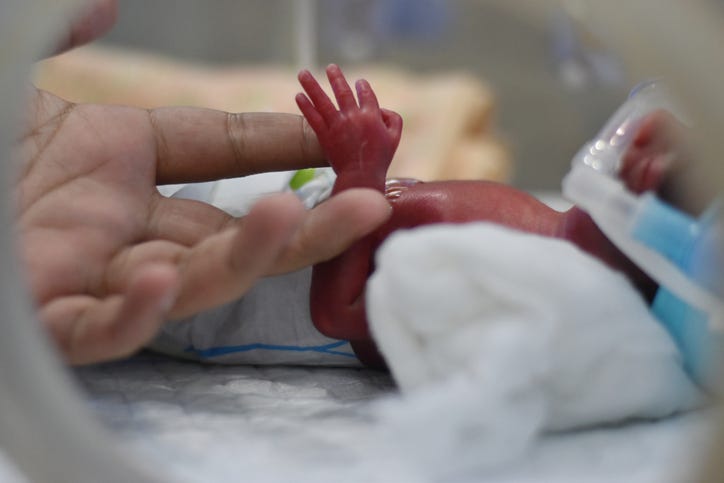
A committee of advisers to the US Food and Drug Administration met this week to discuss artificial womb technology and the possibilities for clinical trials for humans.
The hope is that one day, the technology could be used not to replace human wombs but to increase the chances that extremely premature babies could survive, CNN reported.
The Pediatric Advisory Committee spent two days discussing development plans for establishing regulations, ethical considerations and the effectiveness of artificial womb technology devices, along with guidelines for the first studies in humans.
Similar devices have been used in preterm animals and researchers say they could ultimately help solve a major health problem experienced around the world.
Pre-term births, when a baby is born before 37 weeks of pregnancy, are a growing problem in the U.S., according to data from the Centers for Disease Control and Prevention. The preterm birth rate rose 4% in 2021 -- from 10.1% in 2020 to 10.5% in 2021, the CDC says.
Preterm birth complications are the leading cause of death among children under 5 years of age, responsible for approximately 900 000 deaths in 2019, according to the World Health Organization.
The CDC says babies born too early have higher rates of death and disability, while babies who survive may have breathing problems, feeding difficulties, cerebral palsy, developmental delay, vision problems and hearing problems.
The use of an artificial womb, complete with synthetic amniotic fluid, could allow preterm babies more time to grow and develop, reducing the chances of death or disability. The device would be used as alternative to current standard-of-care management of extremely premature infants in the Neonatal Intensive Care Unit.
The FDA stressed that advisory committees provide independent expert advice on broad scientific topics to help the agency make sound decisions based on the available science. Advisory committees make non-binding recommendations to the FDA, which generally follows the recommendations but is not legally bound to do so.
